Find Help
More Items From Ergsy search
-
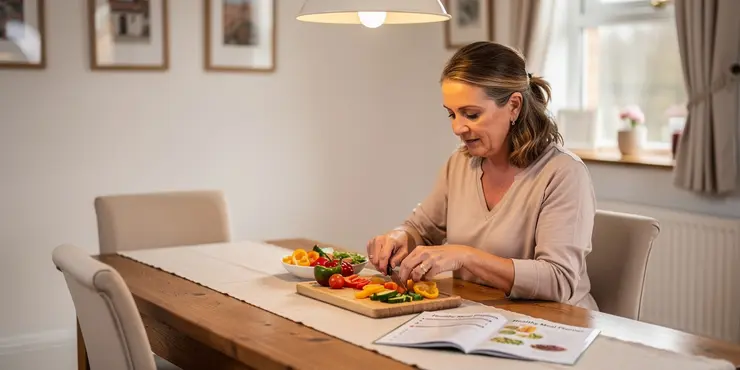
NHSGGC - Diet and Chronic Kidney Disease (CKD)
Relevance: 100%
-
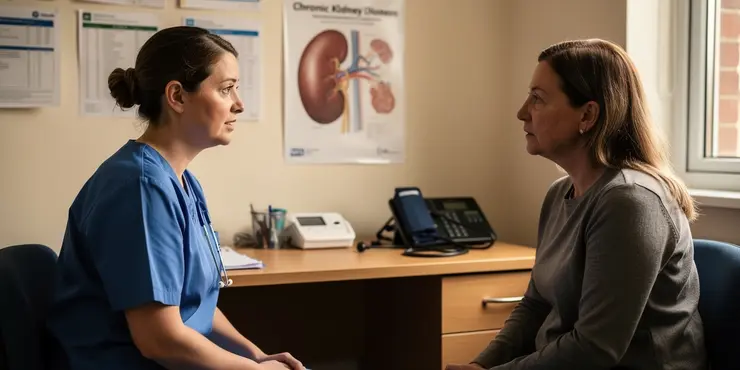
What causes chronic kidney disease?
Relevance: 91%
-
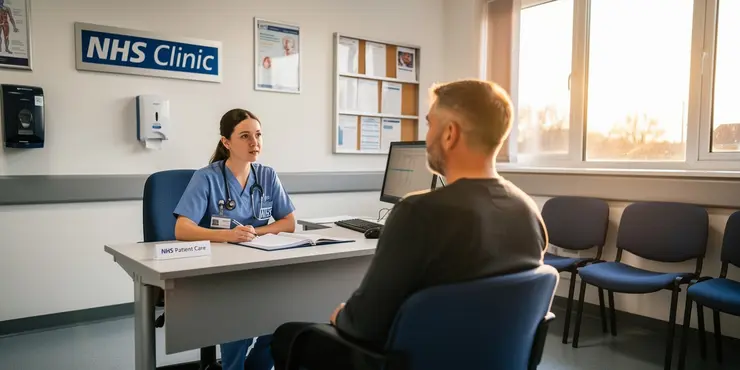
Chronic kidney disease: What are the treatments?
Relevance: 89%
-
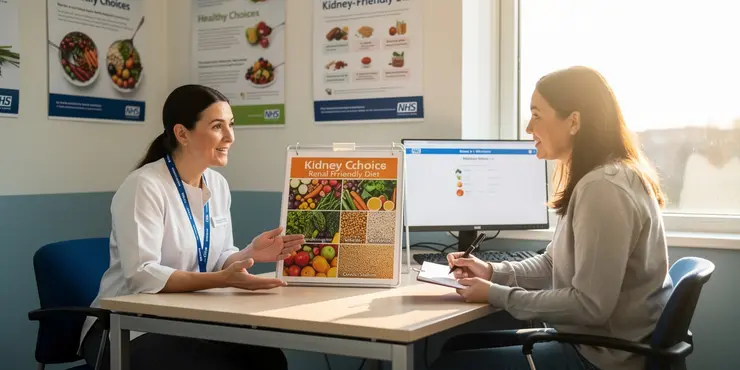
What should I eat to help with chronic kidney disease?
Relevance: 83%
-
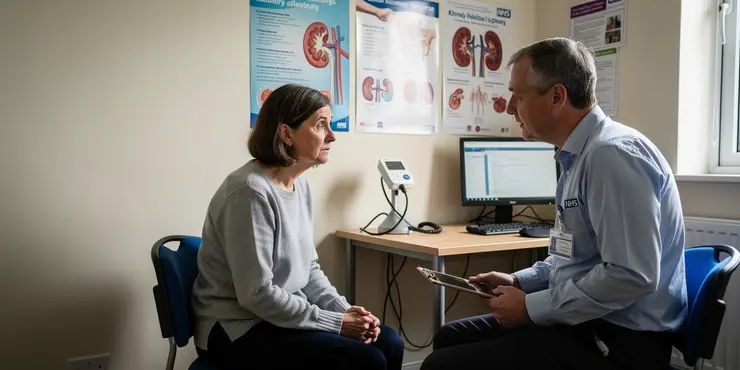
What is my risk of kidney failure with CKD (chronic kidney disease) | UHL NHS Trust
Relevance: 77%
-
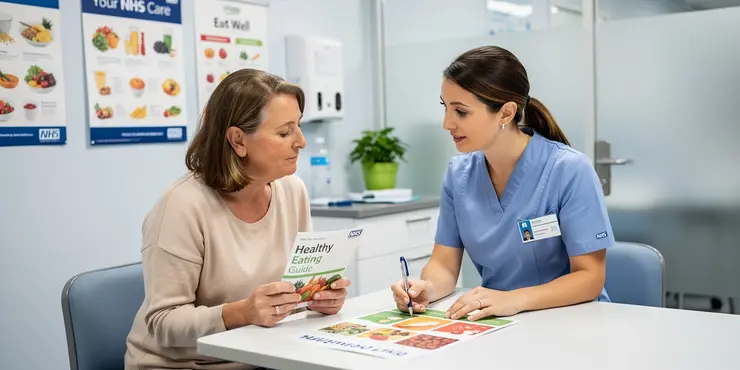
Living with early stage kidney disease
Relevance: 68%
-
Is there a link between seed oils and chronic diseases?
Relevance: 53%
-
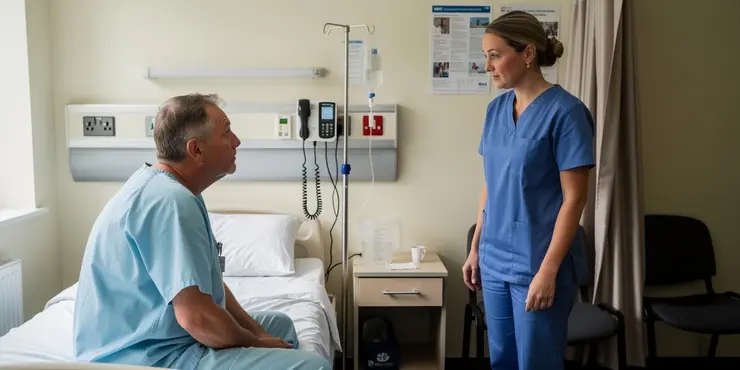
Having a kidney transplant
Relevance: 51%
-
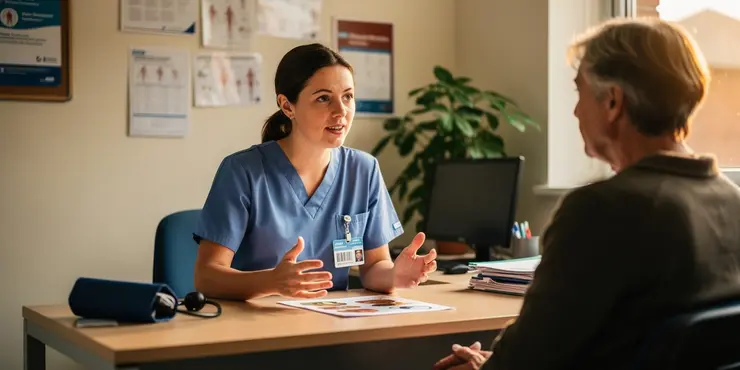
What is the best diet for Crohn’s disease?
Relevance: 49%
-
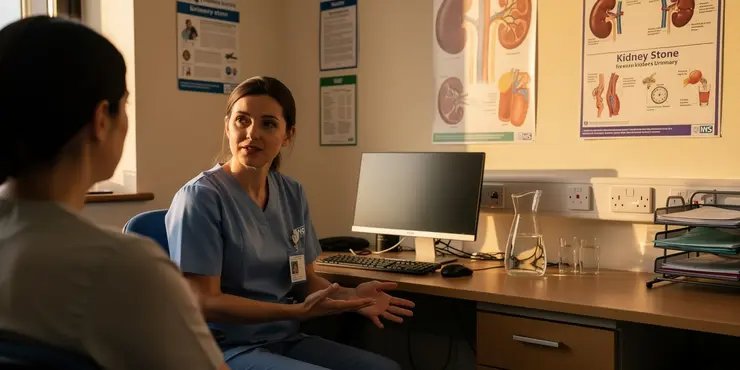
What are kidney stones?
Relevance: 47%
-
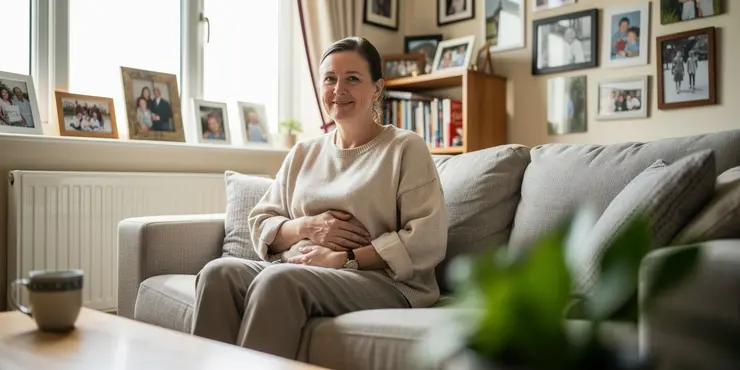
Patient Stories - Having a kidney transplant
Relevance: 47%
-
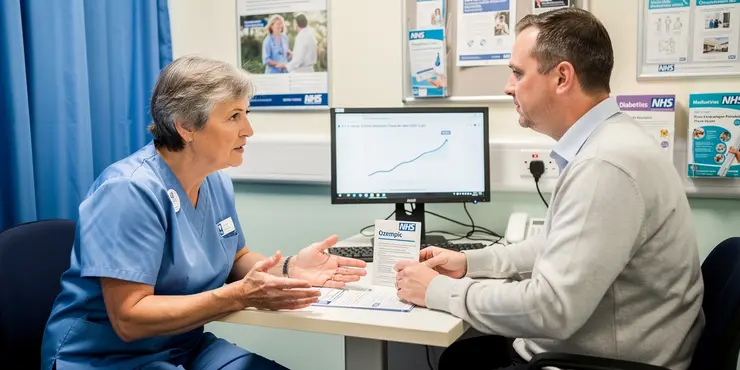
Does Ozempic have an impact on kidney function?
Relevance: 46%
-
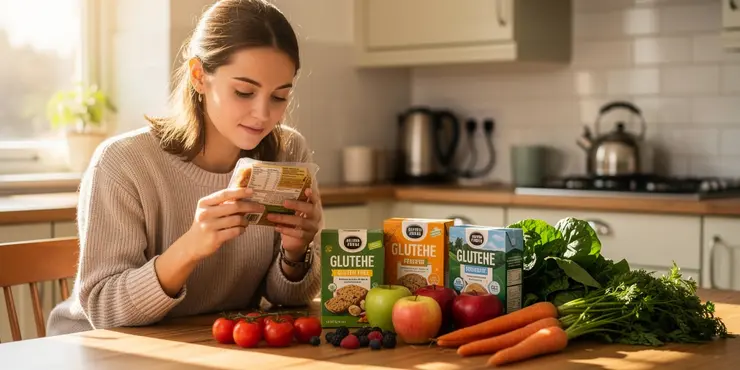
Coeliac Disease: The gluten free diet
Relevance: 44%
-
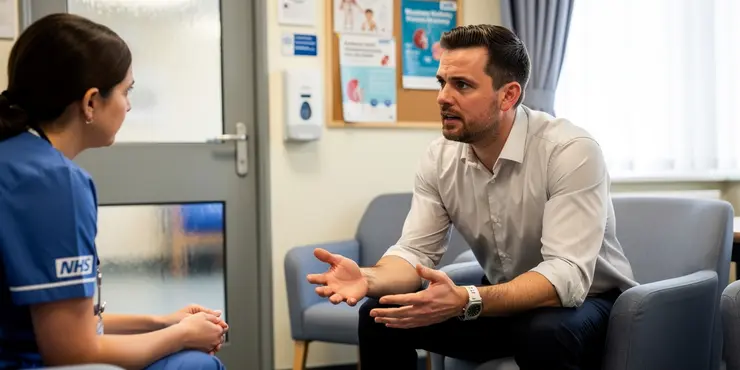
Matthew's Story: Kidney Transplant - Part 1
Relevance: 43%
-
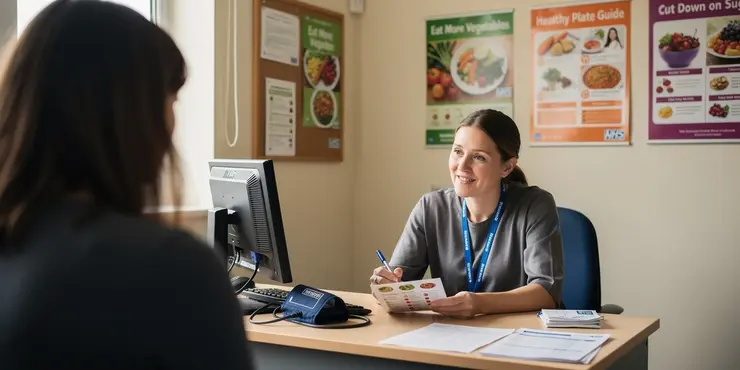
New Study Links Diet Soda to Increased Risk of Heart Disease
Relevance: 39%
-
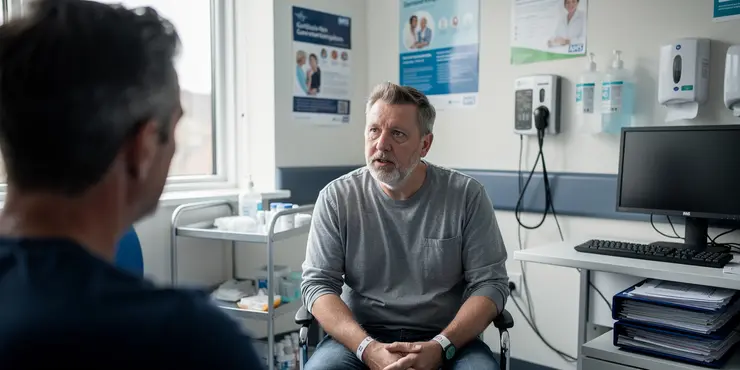
Kidney transplant waiting stories – DJ Ace and Lauren | NHS Organ Donation
Relevance: 37%
-
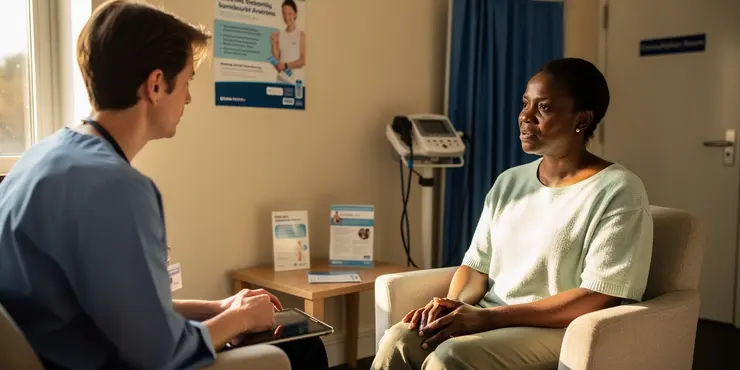
What are the complications of sickle cell disease?
Relevance: 37%
-
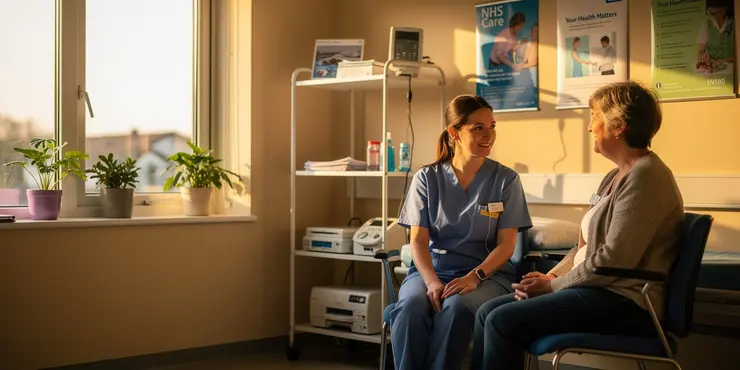
Is chronic fatigue syndrome contagious?
Relevance: 36%
-

Managing Chronic Illness Within the Family
Relevance: 36%
-
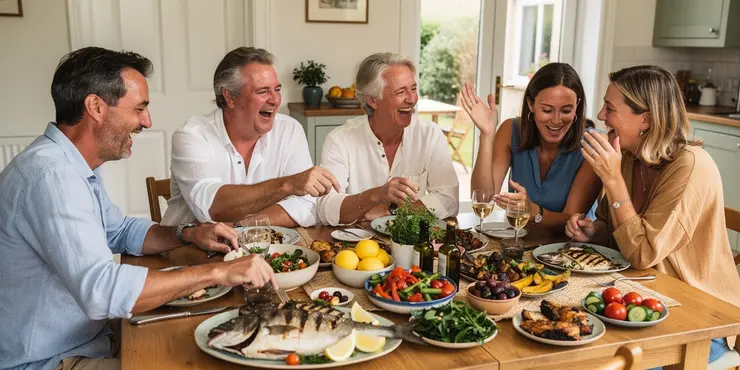
Understanding the Benefits of the Mediterranean Diet
Relevance: 35%
-
What is chronic fatigue syndrome?
Relevance: 34%
-
What is the omega-6 to omega-3 ratio in diets?
Relevance: 34%
-
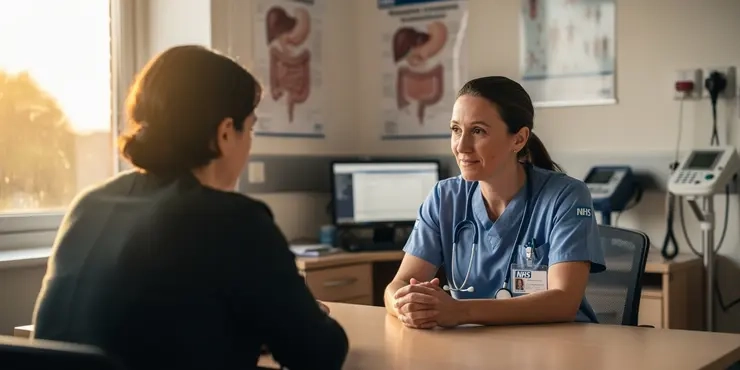
Coeliac disease
Relevance: 33%
-
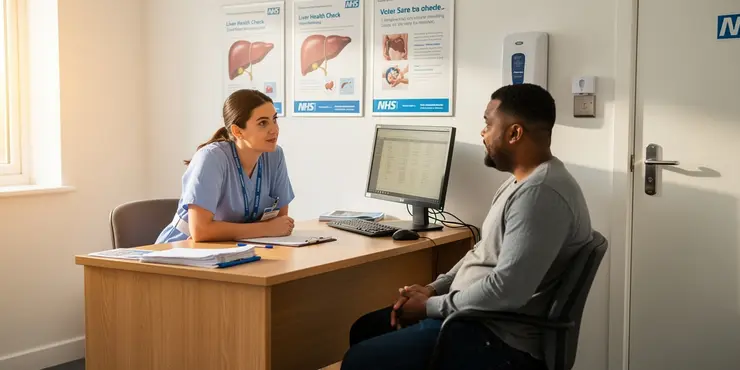
Liver disease | NHS
Relevance: 33%
-
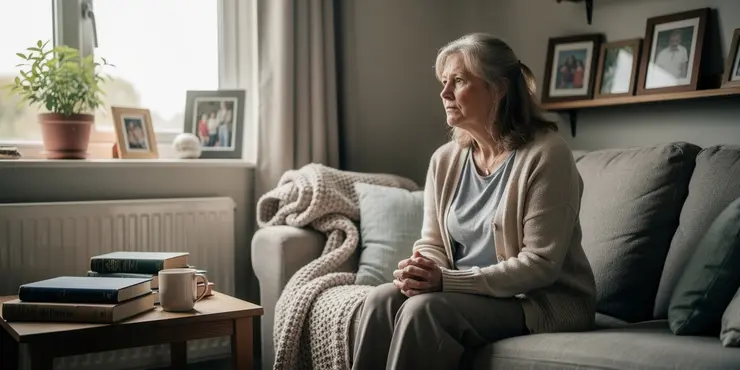
What causes chronic fatigue syndrome?
Relevance: 32%
-
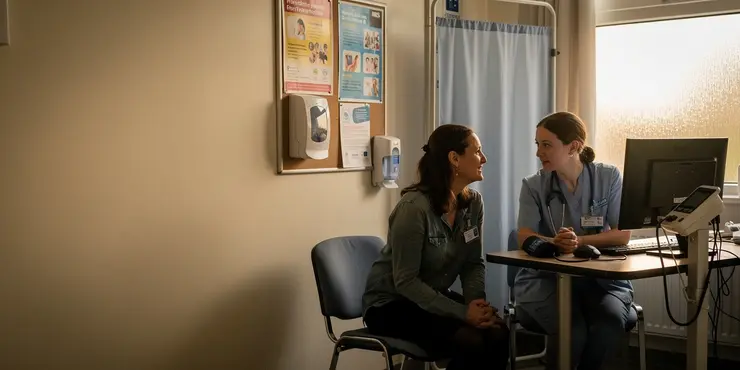
Is Crohn's disease contagious?
Relevance: 32%
-
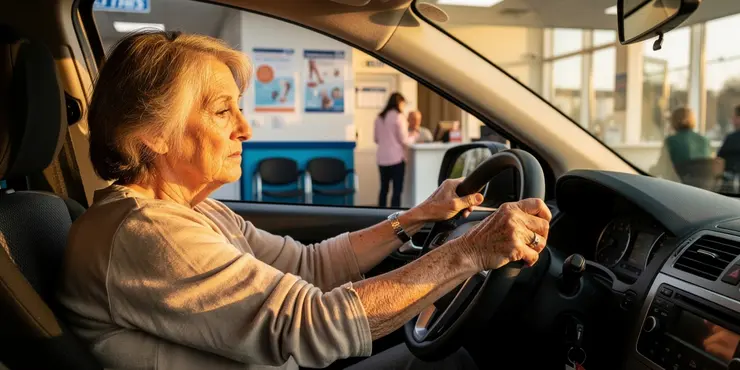
What role do chronic conditions play in driving risks for seniors?
Relevance: 32%
-
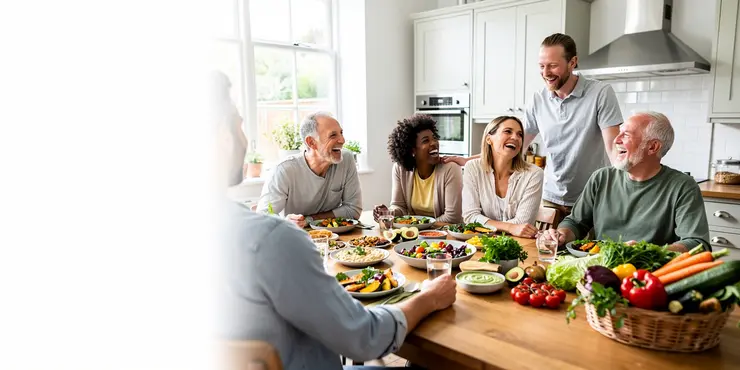
Record Number of Brits Embrace Plant-Based Diets for Wellbeing
Relevance: 32%
-
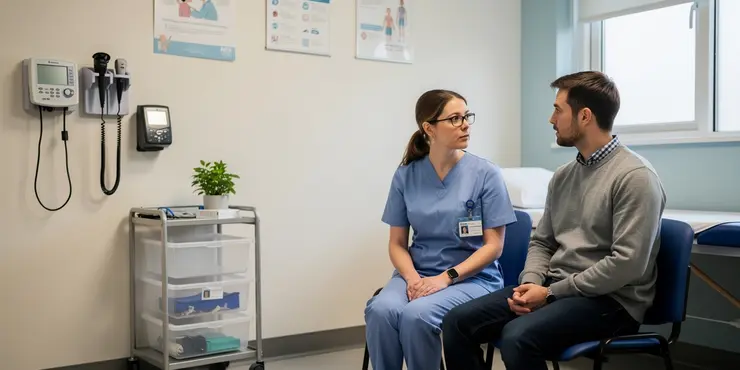
How do cortisol levels differ between acute and chronic stress?
Relevance: 32%
-
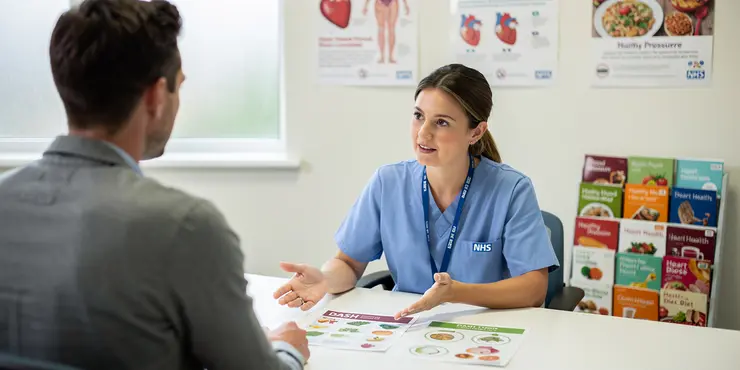
What is the DASH diet?
Relevance: 32%
-
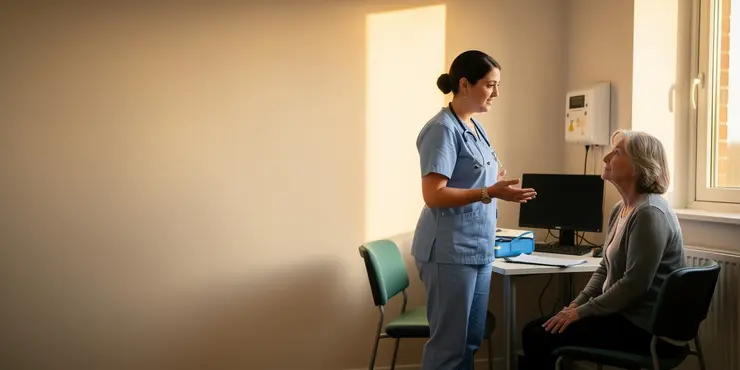
What causes Crohn's disease?
Relevance: 32%
-
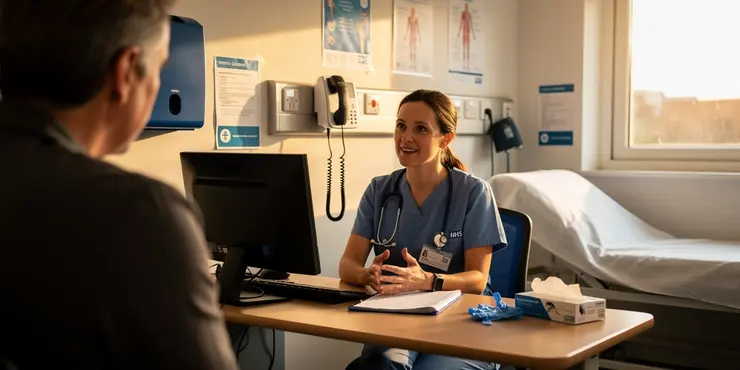
Are there any complications associated with Crohn's disease?
Relevance: 31%
-
Is chronic fatigue syndrome a mental illness?
Relevance: 31%
-
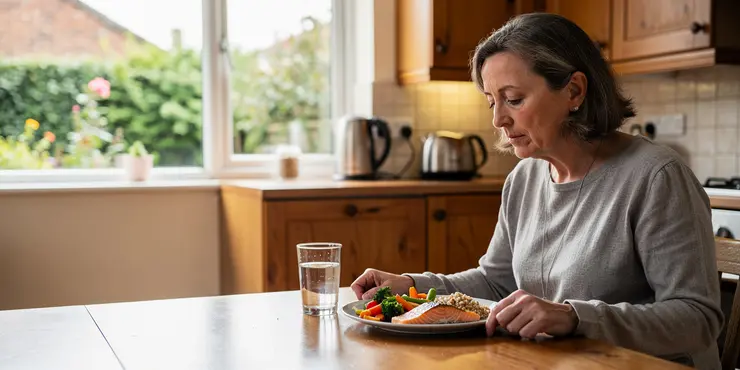
What is the role of diet in managing heart failure?
Relevance: 31%
-
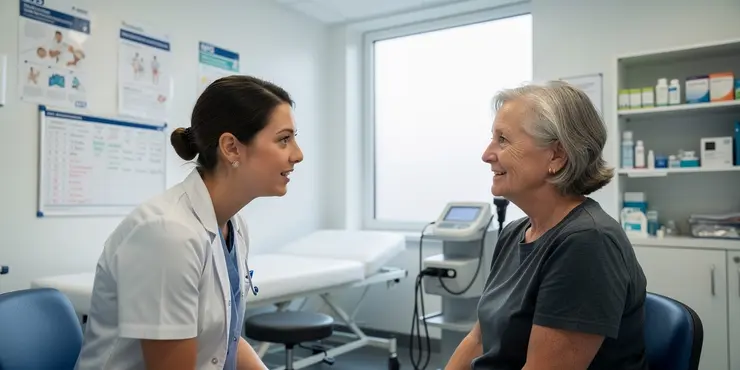
Is there a cure for Crohn's disease?
Relevance: 31%
-
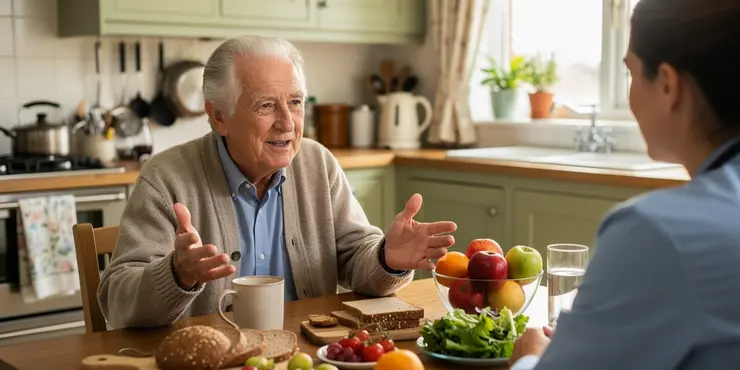
How does a high-sugar diet affect gut health in older adults?
Relevance: 31%
-
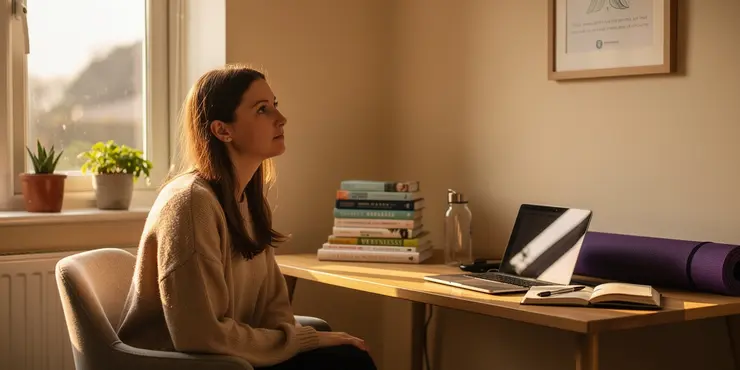
Who is at risk of developing chronic fatigue syndrome?
Relevance: 31%
-
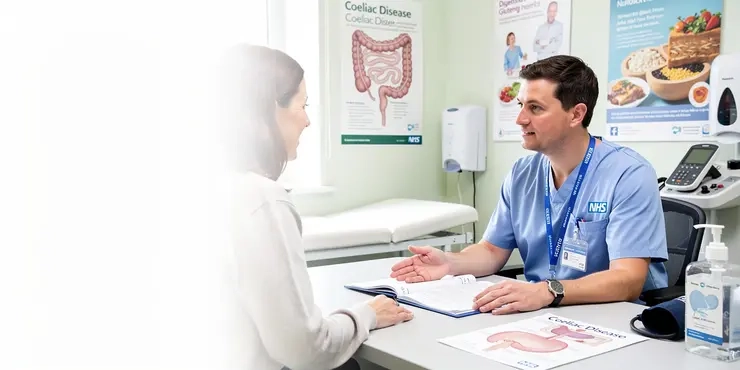
Coeliac Disease: Session 1: What is Coeliac Disease?
Relevance: 31%
-
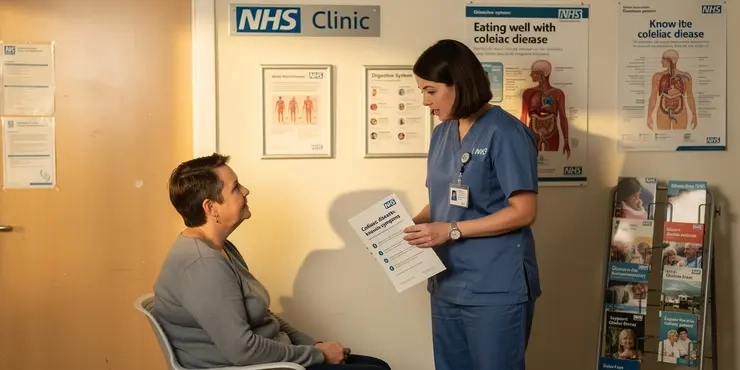
Coeliac Disease Explained - Gluten Sensitivity - A to Z of the NHS - Dr Gill
Relevance: 31%
-
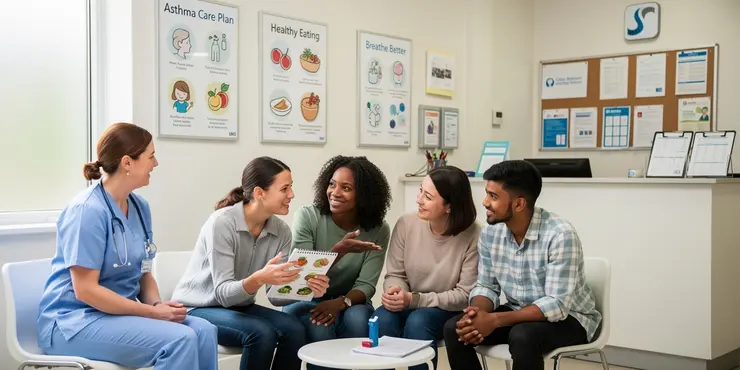
Can diet affect asthma?
Relevance: 30%
What Should I Eat to Help with Chronic Kidney Disease?
Introduction to Diet and Chronic Kidney Disease
Managing chronic kidney disease (CKD) involves a careful balance of nutrients to support kidney function and overall health. In the United Kingdom, dietary recommendations for CKD vary based on the stage of the disease and individual health needs. Working closely with healthcare professionals, including a renal dietitian, can help tailor a diet plan to manage CKD effectively.Key Nutrients to Monitor
Protein
Consuming the right amount of protein is crucial. Excessive protein can burden the kidneys, while too little can lead to malnutrition. Opt for high-quality protein sources such as lean meat, fish, poultry, eggs, and low-fat dairy products. In some cases, plant-based proteins like beans and lentils may be recommended in moderation.Sodium
Reducing sodium intake helps control blood pressure and minimize fluid retention. Aim for less than 2,300 mg of sodium per day. Choose fresh, whole foods, cook at home more often, and avoid processed foods, which are usually high in sodium. Use herbs and spices to flavor food instead of salt.Potassium
Kidneys help regulate potassium levels; thus, individuals with CKD often need to monitor their intake. Foods high in potassium such as bananas, oranges, potatoes, and spinach may need to be limited. Instead, opt for lower-potassium options like apples, berries, carrots, and green beans. Consult with your dietitian for specific guidelines.Phosphorus
Excessive phosphorus can accumulate in the blood if kidney function is compromised, leading to bone and cardiovascular issues. Limit foods like dairy products, nuts, seeds, and certain whole grains. Look for phosphate binders or foods that are phosphate-free to better manage phosphorus levels.Fluids
Managing fluid intake is crucial for those with CKD, especially in advanced stages. Drinking the right amount of fluids can help prevent fluid retention, swelling, and hypertension. Avoid excessive intake of beverages, particularly those with added sugars and caffeine.Additional Tips
- **Eat a balanced diet:** Focus on a variety of fruits, vegetables, lean proteins, and whole grains. - **Monitor portion sizes:** Overeating can put additional strain on your kidneys. - **Regular check-ups:** Consistently monitor kidney function and dietary needs with your healthcare team. - **Read labels:** Be vigilant about ingredients and nutritional information on packaged foods. By following these dietary guidelines, individuals with chronic kidney disease in the UK can better manage their condition and maintain a higher quality of life. Always consult with healthcare providers before making significant changes to your diet.What Should I Eat to Help with Chronic Kidney Disease?
Introduction to Diet and Chronic Kidney Disease
If you have chronic kidney disease (CKD), eating the right foods can help you feel better. In the UK, what you eat for CKD depends on how serious your kidney disease is. You should talk to your doctor or a kidney diet expert to make the best eating plan for you.Key Nutrients to Watch
Protein
Protein is important, but not too much. Too much protein can be hard for your kidneys. Good protein foods are lean meats, fish, chicken, eggs, and low-fat milk. Sometimes, beans and lentils are okay too. Check with your diet expert.Sodium
Eating less salt (sodium) can help control your blood pressure. Try to eat less than 2,300 mg of salt each day. Choose fresh foods, cook at home, and avoid processed foods that are often salty. Use herbs and spices instead of salt for flavor.Potassium
Your kidneys help control potassium, so you may need to watch how much you eat. Bananas, oranges, potatoes, and spinach are high in potassium and should be limited. Instead, try apples, berries, carrots, and green beans. Ask your diet expert what you should eat.Phosphorus
Too much phosphorus can be bad for your bones and heart if you have CKD. Limit foods like dairy, nuts, seeds, and some grains. You might need special help from foods that don't have phosphate or from medications. Talk to your doctor.Fluids
Drinking the right amount of water and fluids is important. It helps prevent swelling, keeps your blood pressure normal, and stops fluid build-up. Don’t drink too much, especially drinks with lots of sugar or caffeine.Extra Tips
- **Eat different healthy foods:** Choose fruits, veggies, lean proteins, and whole grains. - **Watch how much you eat:** Eating too much can be hard on your kidneys. - **See your doctor often:** Check your kidney health and eating needs regularly. - **Read food labels:** Check what's in packaged foods before you eat them. By eating the right foods for CKD, you can feel better and live healthier. Always talk to your healthcare team before changing your eating plan.Frequently Asked Questions
What types of protein are best for chronic kidney disease patients?
For chronic kidney disease (CKD) patients, it's best to choose high-quality proteins such as lean meats (chicken, fish), eggs, and low-fat dairy products. Plant-based proteins like beans and lentils can also be beneficial.
Should I limit my salt intake if I have chronic kidney disease?
Yes, reducing salt intake can help manage blood pressure and reduce fluid retention, which is important for kidney health. Aim for no more than 6g of salt (2.4g of sodium) per day.
Can I eat dairy products with chronic kidney disease?
You can eat dairy products, but it’s important to choose low-phosphorus options such as cream cheese, non-dairy creamers, or rice milk. Avoid high-phosphorus dairy like hard cheeses and full-fat milk.
Are fruits and vegetables good for CKD patients?
Yes, but be mindful to choose fruits and vegetables low in potassium if you have advanced CKD. Good options include apples, berries, cabbage, and cucumbers.
Is it safe to drink coffee if I have CKD?
Moderate consumption of coffee is generally safe for CKD patients, but it’s advisable to opt for low-phosphorus creamers and limit added sugar.
What grains should I include in my diet?
Whole grains such as brown rice, whole wheat bread, and oats are generally good choices. However, portion control is important, especially if you're on a potassium or phosphorus-restricted diet.
Should I avoid processed foods with CKD?
It’s best to limit processed foods as they often contain high levels of sodium, potassium, and phosphorus. Opt for fresh, homemade meals whenever possible.
Can I eat nuts and seeds?
Nuts and seeds should be eaten in moderation as they are high in phosphorus and potassium. Opt for small servings and consult your dietitian for personalised advice.
Are there specific beverages I should avoid?
It’s advisable to avoid high-sodium and high-potassium beverages such as certain sports drinks and sodas. Water and herbal teas are generally safe choices.
Should I eat fewer foods high in phosphorus?
Yes, managing phosphorus levels is crucial for CKD patients. Foods high in phosphorus include dairy, beans, nuts, and certain whole grains. Choose alternatives like cream cheese and rice milk.
Can I have sugary treats if I have CKD?
Sugary treats should be limited, especially if you have diabetes along with CKD. Opt for healthier snacks like fresh fruit (within your potassium allowance) or rice cakes.
Is it important to monitor portion sizes?
Yes, monitoring portion sizes is essential, especially when managing nutrient intake for CKD. Smaller portions of high-protein and high-phosphorus foods can help keep levels in check.
Do herbal supplements help with CKD?
Always consult your healthcare provider before taking any herbal supplements. Some may conflict with CKD medications or worsen kidney function.
Should I include more healthy fats in my diet?
Healthy fats from sources like olive oil, avocados, and nuts can be included in moderation. They are beneficial for overall health, but always consider your individual dietary needs.
How critical is hydration for CKD patients?
Hydration is important but should be tailored based on your stage of CKD. Your doctor may recommend a specific fluid intake level to manage fluid retention.
What types of meat and beans are good for people with kidney problems?
People with kidney problems need to be careful with what they eat. Some meats and beans are good for them.
Good Choices:
- Chicken or turkey - cooked simply without salt.
- Fish like salmon or tuna - they are healthy and tasty.
- Eggs - they are easy to cook and good for the body.
- Beans - but not too many!
These are easy for the body and do not hurt the kidneys too much. Remember to talk to a doctor about what's best for you.
Tips and Tools:
- Use a food diary to keep track of what you eat.
- Ask someone to help you plan your meals.
- Use pictures of good foods to help you choose.
If you have kidney problems, eating the right foods can help. Choose good proteins like lean meats. This means chicken and fish. Eggs and low-fat milk products are also good. Proteins from plants like beans and lentils can help too.
Tools like using food labels can help you choose the right foods. You can also use pictures or apps that show healthy food choices. Ask someone you trust, like a doctor or dietitian, for more help.
Is it good to eat less salt if I have kidney problems?
Yes, eating less salt can help keep your blood pressure low and stop your body from holding too much water. This is good for your kidneys. Try to eat no more than 6 grams of salt each day. That is about 2.4 grams of sodium.
Can I eat dairy if my kidneys are sick for a long time?
If you have sick kidneys that do not get better, you may need to be careful with dairy foods like milk, cheese, and yogurt.
- Ask your doctor or nurse if dairy is okay for you.
- They may tell you to eat smaller amounts of dairy.
- Try using tools like pictures or simple charts to help you remember how much dairy you can eat.
You can eat some dairy foods. It's good to pick ones with low phosphorus. These are things like cream cheese, non-dairy creamers, or rice milk. Try not to eat foods with high phosphorus, like hard cheeses and full-fat milk.
Can people with kidney problems eat fruits and vegetables?
If you have problems with your kidneys, ask a doctor if you should eat fruits and vegetables.
Some fruits and vegetables might be good for you, but some might not be.
Doctors can tell you what is safe to eat.
You can use apps or charts that help you choose the right foods.
Yes, you can eat fruit and vegetables, but be careful. If you have advanced CKD, pick ones low in potassium. Good choices are apples, berries, cabbage, and cucumbers.
Can I drink coffee if my kidneys are sick?
Drinking a little coffee is usually safe for people with kidney problems, but try to use creamers with less phosphorus and not add too much sugar.
What grains should I eat?
Grains are seeds like rice, oats, and corn. They give you energy and help you stay healthy.
- Rice: You can eat brown rice or white rice. Brown rice is very healthy because it has lots of fiber.
- Oats: Oats are good for breakfast. They help your heart stay healthy.
- Corn: Corn can be eaten as corn on the cob, popcorn, or in salads.
- Wheat: Wheat is used to make bread, pasta, and cereals.
- Quinoa: Quinoa is a seed that is also very healthy. It has lots of protein.
Eat different types of grains to stay strong and healthy!
You can use tools like a food chart to help you remember which grains to eat. Ask a friend or family member if you need help.
Whole grains like brown rice, whole wheat bread, and oats are good to eat. But it's important to eat the right amount. This is very important if you need to eat less potassium or phosphorus.
You can use tools like a measuring cup to help you eat the right amount. A food diary can also help you keep track of what you eat.
Is it okay to eat processed foods if you have kidney problems?
People with kidney problems might want to eat less processed foods.
Processed foods can have lots of salt, sugar, and things that might harm the kidneys.
Try eating fresh fruits and vegetables instead.
If you are unsure, talk to a doctor or a dietitian for advice.
Using a food tracker or app can help you see what you eat and make better choices.
It's good to eat less processed food. Processed food often has lots of salt, potassium, and phosphorus. Try to eat fresh, homemade meals when you can.
For help, you can use picture cards to show different foods. You can also use cooking apps with simple recipes.
Can I eat nuts and seeds?
Nuts and seeds are types of food. People often ask if they can eat them. Here is some information to help you decide:
- Nuts and seeds can be good for you. They have healthy fats and help your body stay strong.
- Some people are allergic to nuts and seeds. If you feel itchy or sick after eating them, tell an adult.
- Talk to a doctor if you are not sure. They can give you the best advice.
- If you have trouble eating or chewing nuts and seeds, try other soft foods like peanut butter.
Remember, it is always okay to ask for help if you are not sure about something. Talking with a family member or friend can also help you understand better.
Eat only a few nuts and seeds because they have a lot of phosphorus and potassium. Have small amounts and ask your diet expert what is best for you.
Are there some drinks I should not have?
Try not to drink drinks that have a lot of salt or a lot of potassium. Some sports drinks and fizzy drinks have a lot of these. It is better to drink water or herbal tea. They are usually safe and good for you.
Should I eat less food with a lot of phosphorus?
Phosphorus is a mineral that helps keep our bones and teeth strong. It is found in some foods.
Eating too much phosphorus can sometimes be bad for you, especially if you have kidney problems.
If you need help choosing the right foods, you can:
- Ask a doctor or nurse for advice.
- Use picture charts of foods that are good to eat.
- Ask someone to help you make a food plan.
Yes, it is very important to keep phosphorus levels low if you have kidney disease (CKD). Foods with a lot of phosphorus are milk, beans, nuts, and some whole grains. You can eat things like cream cheese and rice milk instead.
Can I eat sweet treats if I have CKD?
Yes, you can have sweet treats, but it's important to be careful.
If you have CKD (which is short for Chronic Kidney Disease), you need to take care of your kidneys.
Here are some tips:
- Talk to your doctor about how much sugar is okay for you.
- Try eating fruits like apples or bananas instead of candy.
- Drink lots of water and have healthy snacks.
- Use a small plate so you don't eat too much sugar.
Ask a family member or friend to help you make good choices.
Try to eat less sugary treats. This is important if you have diabetes and kidney problems. Instead, pick snacks that are healthier. You can have fresh fruit (but not too much because of potassium) or rice cakes.
Is watching how much we eat important?
Yes, watching how much we eat is important. Eating the right amount helps us stay healthy and feel good.
Here are some ways to help:
- Use a smaller plate to help take less food.
- Check food labels to see serving sizes.
- Share big meals with a friend.
- Eat slowly to know when you are full.
Yes, it is important to watch how much you eat. This is really important if you have kidney problems. Eating smaller amounts of foods with lots of protein and phosphorus can help keep you healthy.
Can plant medicines help with kidney disease?
Before you take any herbal supplements, talk to your doctor. Some herbs can be a problem with your kidney medicine or make your kidneys worse.
Is it good to eat more healthy fats?
It can be good to eat healthy fats. They are in foods like avocados, nuts, and fish. Healthy fats help your brain and your heart. But, like everything, it is important to eat them in the right amount. Too much of anything is not good.
Here are some ways to eat healthy fats:
- Try eating nuts or seeds for a snack.
- Add some avocado to your sandwich.
- Have some fish, like salmon, for dinner.
To help you make better food choices, you can:
- Use a chart or list to see which foods have healthy fats.
- Ask someone to help you plan your meals.
- Watch videos about healthy eating.
Good fats from foods like olive oil, avocados, and nuts can be eaten a little bit. These fats are good for your health, but make sure to think about what your body needs.
Why is drinking water important for people with kidney problems?
It is important to drink the right amount of water. The amount you need to drink may change with different stages of kidney disease. Your doctor can tell you how much water is best for you to drink.
Useful Links
This website offers general information and is not a substitute for professional advice.
Always seek guidance from qualified professionals.
If you have any medical concerns or need urgent help, contact a healthcare professional or emergency services immediately.
Some of this content was generated with AI assistance. We’ve done our best to keep it accurate, helpful, and human-friendly.
- Ergsy carfully checks the information in the videos we provide here.
- Videos shown by Youtube after a video has completed, have NOT been reviewed by ERGSY.
- To view, click the arrow in centre of video.
- Most of the videos you find here will have subtitles and/or closed captions available.
- You may need to turn these on, and choose your preferred language.
- Go to the video you'd like to watch.
- If closed captions (CC) are available, settings will be visible on the bottom right of the video player.
- To turn on Captions, click settings .
- To turn off Captions, click settings again.
More Items From Ergsy search
-

NHSGGC - Diet and Chronic Kidney Disease (CKD)
Relevance: 100%
-

What causes chronic kidney disease?
Relevance: 91%
-

Chronic kidney disease: What are the treatments?
Relevance: 89%
-

What should I eat to help with chronic kidney disease?
Relevance: 83%
-

What is my risk of kidney failure with CKD (chronic kidney disease) | UHL NHS Trust
Relevance: 77%
-

Living with early stage kidney disease
Relevance: 68%
-
Is there a link between seed oils and chronic diseases?
Relevance: 53%
-

Having a kidney transplant
Relevance: 51%
-

What is the best diet for Crohn’s disease?
Relevance: 49%
-

What are kidney stones?
Relevance: 47%
-

Patient Stories - Having a kidney transplant
Relevance: 47%
-

Does Ozempic have an impact on kidney function?
Relevance: 46%
-

Coeliac Disease: The gluten free diet
Relevance: 44%
-

Matthew's Story: Kidney Transplant - Part 1
Relevance: 43%
-

New Study Links Diet Soda to Increased Risk of Heart Disease
Relevance: 39%
-

Kidney transplant waiting stories – DJ Ace and Lauren | NHS Organ Donation
Relevance: 37%
-

What are the complications of sickle cell disease?
Relevance: 37%
-

Is chronic fatigue syndrome contagious?
Relevance: 36%
-

Managing Chronic Illness Within the Family
Relevance: 36%
-

Understanding the Benefits of the Mediterranean Diet
Relevance: 35%
-
What is chronic fatigue syndrome?
Relevance: 34%
-
What is the omega-6 to omega-3 ratio in diets?
Relevance: 34%
-

Coeliac disease
Relevance: 33%
-

Liver disease | NHS
Relevance: 33%
-

What causes chronic fatigue syndrome?
Relevance: 32%
-

Is Crohn's disease contagious?
Relevance: 32%
-

What role do chronic conditions play in driving risks for seniors?
Relevance: 32%
-

Record Number of Brits Embrace Plant-Based Diets for Wellbeing
Relevance: 32%
-

How do cortisol levels differ between acute and chronic stress?
Relevance: 32%
-

What is the DASH diet?
Relevance: 32%
-

What causes Crohn's disease?
Relevance: 32%
-

Are there any complications associated with Crohn's disease?
Relevance: 31%
-
Is chronic fatigue syndrome a mental illness?
Relevance: 31%
-

What is the role of diet in managing heart failure?
Relevance: 31%
-

Is there a cure for Crohn's disease?
Relevance: 31%
-

How does a high-sugar diet affect gut health in older adults?
Relevance: 31%
-

Who is at risk of developing chronic fatigue syndrome?
Relevance: 31%
-

Coeliac Disease: Session 1: What is Coeliac Disease?
Relevance: 31%
-

Coeliac Disease Explained - Gluten Sensitivity - A to Z of the NHS - Dr Gill
Relevance: 31%
-

Can diet affect asthma?
Relevance: 30%


